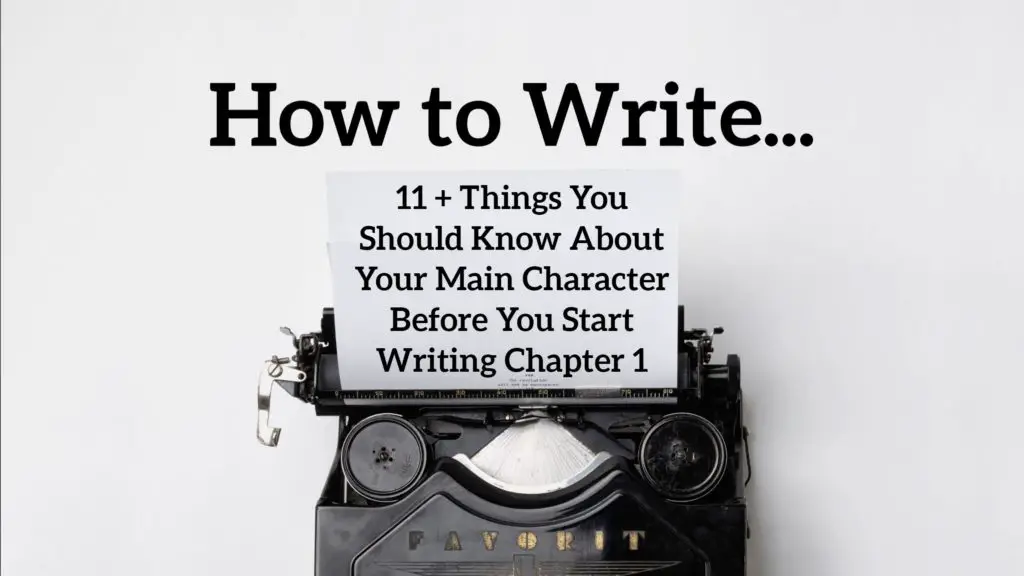
11 + Things You Should Know About Your Main Character Before You Start Writing Chapter 1
We spend so much time thinking about the story and the plot and what we want to happen and why and then… we start writing chapter 1.
We start writing only to find that we don’t really know our main characters very well.
Have we ever taken the time to see what it would be like to sit down with them and have a cup of coffee to see what they would be like as a person in the real world?
Imagine you are sitting with your main character on a nice sunny breezy day outside a coffee shop and their name is Thor.
“Hi Thor, how are you today?”
“I’m marvelous and this brown liquid you have served me, what did you call it again?!”
“Hah, Thor, that’s coffee.”
“Ah! Coffee! I love this stuff! It makes me feel so alive and ready to conquer all my foes! I’ll take 3 more pitchers!”
“But Thor that much might make your heart race very fast.”
“Good! Indeed, I hope it does! I’ll take 5 more in that case! Bring them at once bar maiden!”
Silly though as it may be, it can be quite fun to think about what it would be like to sit and talk with your main character in various scenarios and even in their realm.
What would it be like to be their sidekick on an adventure?
What would it be like to walk with them through a quiet field?
What would it be like to go with them into a bar or tavern?
What would it be like to go on a 10-hour road trip with them?
What would it be like to go on a high-speed car chase with them?
In order to make our stories more amazing, we have to know what it would be like to spend time with our characters and how they would react or act in certain situations.
By knowing upfront how they would act in a certain situation we can put them into almost any scenario and not betray their character. This is one simple way to make sure we write a good main character compared to a lousy one.
How would they act if they were sad?
Characters show sadness in different ways. Some bottle it up and try to manage it on their own.
Others immediately wail out and tears are flowing.
What pokes the heartstrings of your character? What would make them a little sad and what would be devastatingly sad to them?
When we are able to make our characters realistically sad it will have an effect on our readers too.
How would they act in anger?
Are they the type of character that can’t handle their anger and they act vengefully? Or do they act cool and calm no matter what comes at them?
What would make them angrier; their best friend getting punched in the face or their own face being punched?
Does injustice make them angry? Or could they care less? Does their own suffering make them angry or does seeing the suffering of others make them angrier?
What would devastate your character emotionally?
What things could your antagonist target in your character’s life that would devastate your main character?
How would they feel emotionally and react to someone messing with:
- Their brother or sister
- Their mother or father
- Uncle
- Best friend
- Acquaintance
- Stranger they see
- Shop owner
- Their teacher
- Their relationship or crush
- Their waiter or waitress
- Their car
- Their grades
- Scholarship
- The sports team (cheating)
How does your character react to change?
Change comes in many forms and it is a brilliant idea to introduce change to your character while you are writing about them to see how they would react and what the consequences would be.
Are they forced to move away from home?
Did the school just kick them out of one class with their favorite teacher to a class with a terrible teacher?
Did they lose their job? Did their boss quit? Did they get a new assignment with a different team?
Did they not make varsity this year compared to last year?
Does your character make friends easily?
Whether or not a character has friends and makes friends easily says a lot about them. Are they the life of the party or a good personal listener?
Or are they a loner and have a hard time relating to others in any form?
How do they normally react to the idea of spending an evening around strangers? Do they thrive on meeting new people or do they hate the idea?
Do they have many friends? Do they have just a few friends? Or do they not really have any friends?
Want to get paid to write? Check out Writing Paychecks
- There is a simple method over 30,000 people use to get paid for freelance writing online.
- Opportunities can get started in just minutes a day, all from your home couch.
- It’s easy to get started! No previous experience or degree required to start.
- Exclusive job listings for writers, updated daily.
Check out Writing Paychecks to see if you can start getting paid to write today.

What are the character’s major fears?
Know what your character fears and how this affects the plot. Some characters fear getting into certain situations.
They may fear being on stage or swimming with sharks. They might be afraid to talk to a popular person they like.
Other’s experience fears of certain things.
They may fear certain animals or bugs like snakes and spiders. Those are a bit cliche, but you could make them afraid of other things like certain flowers or butterflies. These types of fears give our fictional characters more depth.
What are your character’s minor fears?
Writers often think of major fears without thinking of minor fears. You can give your character more humanity by giving them a slight fear of rats, bats, or spiders. Things people are commonly slightly afraid of.
Everyone has minor fears, things that might make them jump or scream. They might run out of the room because of these fears, but they won’t become debilitated or break into a sweat or start crying.
What are your characters not afraid of at all?
We can make entertaining and interesting characters by writing that they have no fear of more commonly feared things. Make them not afraid of sharks, speaking, cliff jumping, sky diving, or bank robbing. Think of common major fears.
Is your character a planner?
Does your character plan out what they do? Do they know what they are going to do tomorrow or not?
Are they extremely spontaneous or do they plot every move they make at the grocery store?
If plans don’t go their way do they get impatient and lose their cool? For planners, the plans they make are EXTREMELY important to them, so if anything goes outside the bounds of the plan that can make the entire event a COMPLETE and utter failure.
For someone that is more spontaneous, they actually enjoy just going and seeing what happens. They’d rather not have a plan at all and just enjoy the adventure.
Is your character spontaneous?
Does your character jump first and think second? A spontaneous character can be easier to write sometimes because you can easily make something up as you for their actions.
Planners have to be planned out and stick to the plan.
On the flip side, your character could be a hardcore planner where their plans almost NEVER work out. This could be entertaining and interesting to watch how it plays out for a character that experiences a lot of stress and turmoil just by plans going out of whack.
Does your character lie?
Does your character have a habit of lying? What do they lie about?
Do they lie because they are afraid of getting caught? If they do lie but not easily, what first prompts them to lie? Why would they give in to the temptation and who are they willing to lie to and about what?
A character’s personality and traits are a complicated web of thoughts, habits, and emotions, but know how they would think about and react to things is a great place to start figuring out just who this new character you have in your mind REALLY is.
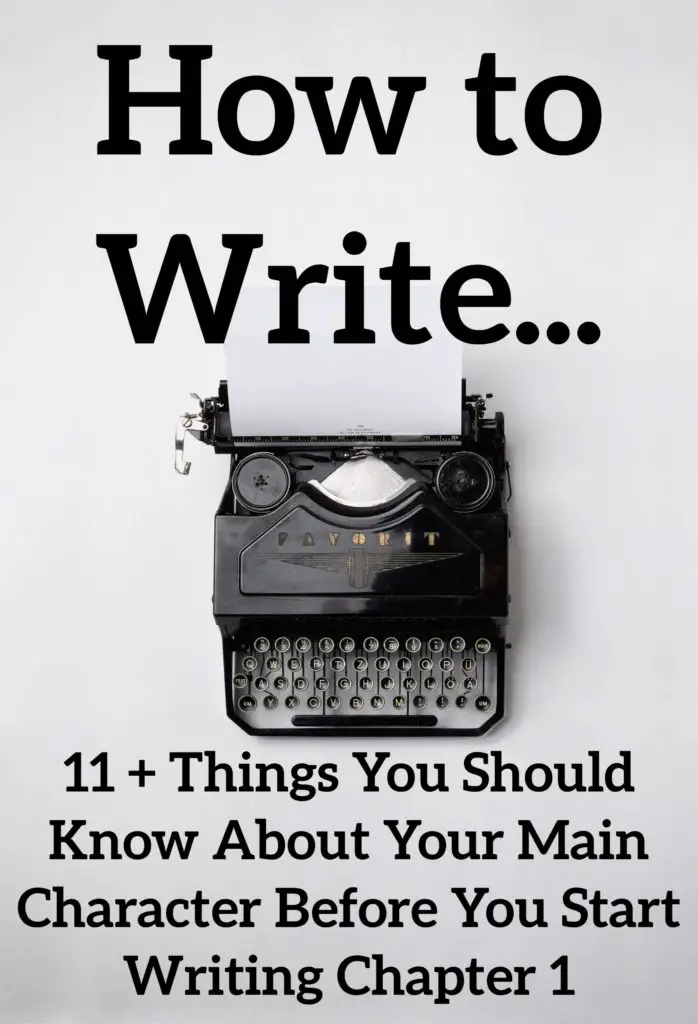

Want to get paid to write? Check out Writing Paychecks
- There is a simple method over 30,000 people use to get paid for freelance writing online.
- Opportunities can get started in just minutes a day, all from your home couch.
- It’s easy to get started! No previous experience or degree required to start.
- Exclusive job listings for writers, updated daily.
Check out Writing Paychecks to see if you can start getting paid to write today.



That’s all for now.
I hope this helps! Now get out there and write something!
Happy writing!
Interested in starting a blog of your own? Check out Bluehost.
Check out these FREE trial resources from Amazon for when you work from home (or are stuck at home 🙂 ) As an Amazon associate, if you do sign up or buy anything using Amazon links from our site we make a commission at no extra cost to you.
Free Prime Membership Trial:
Try Amazon Prime 30-Day Free Trial
Try Prime Discounted (Free Trial)
Get Unlimited Music for Free (30-day free trial):
Free Baby Registry:
Shop Amazon – Create an Amazon Baby Registry
Make your Free Amazon Wedding Registry:
Create an Amazon Wedding Registry
What are you writing to make them known?
Here are Some other posts you might just love:
6 Easy Practical Steps to Becoming a Better Writer in 30 Days or Less
11 Easy Simple Steps to Start a Blog in 2019 (And Be Primed to Monetize With Owning Your Own Site)
10 Tips How to Write Villains that Play Mind Games with Their Victims
How To Write 4 Scenes That Reveal Who Your Character Is Seamlessly
4 Tips How to Write your Character Hitting Rock Bottom
Make sure your posts are readable. Use this readability score check
Want to check out a writer’s community to test your writing and get feedback?
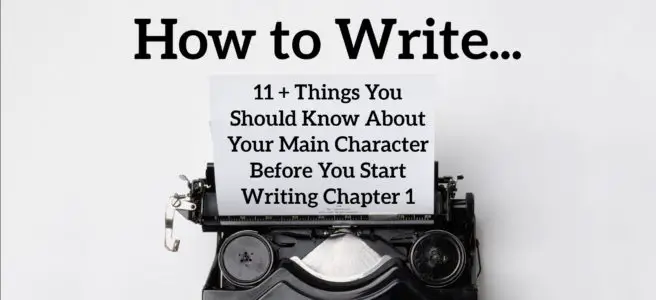

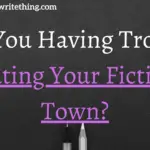

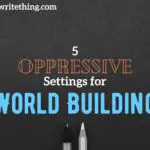
I’ve seen these before, but questions like a road trip passenger got me thinking. I tend to discover things along the way, but this is making me rethink things.
That’s great Joe! Glad this article helped you rethink things.
Love this article! I’ll be sharing it in my next newsletter for my audience in my character building themed newsletter 🙂
Thank you, Michelle:) We’re encouraged to hear that you loved it. We hope your audience will find it helpful too!